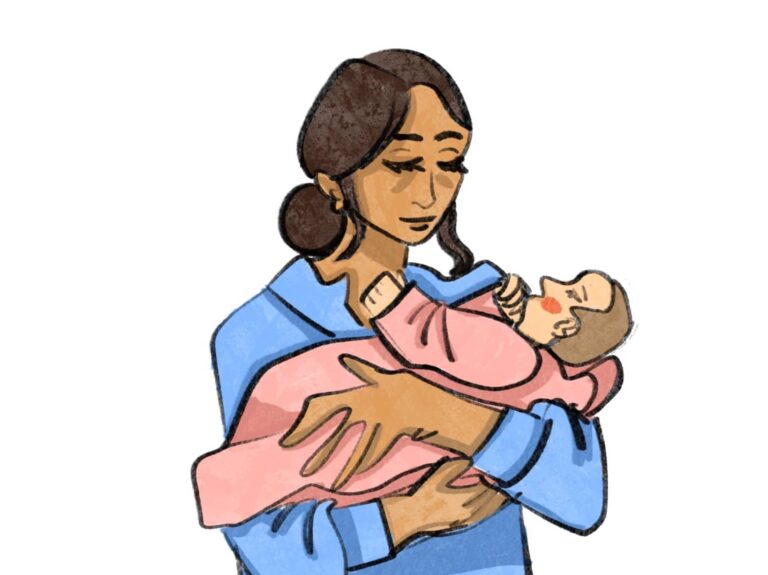The Mood – Food Relationship
Rituparna is a History majors student, soon to be a graduate. She works as a part time academic writer at a freelancing site and spends her free time reading novels and watching movies/series. She loves writing about almost anything that is relatable to the present generation- from quotes, poems, stories to proper academic papers.
The current global pandemic has drastically changed our lifestyles and food habits. Confined to our rooms with nothing but our phones and laptops to occupy ourselves with, we seek to satisfy ourselves with our favourite fast foods from time to time. But we seldom realise that our so-called comfort foods do not have a comforting impact on our mental health. Last year, I found myself tilting towards an unhealthy diet during the initial months of lockdown. But the more I sought comfort in pizza, momos, noodles, or ice-creams, the more I found my mental health deteriorating. I experienced frequent mood swings and to cope with that, I increased my dependency on comfort foods until their toll on my mood became evident. This led me to conduct a personal research on the possible relationship between food and mood which revealed some fascinating details.
The impact of food on physical health and wellbeing is a well-established fact. However, far less information has been revealed to show how food has the potential to promote or hamper the happiness and mental health of a person. Recent scientific studies on the mood-food connection have provided us with the hard evidence that there is indeed a direct relationship between healthy food and a healthy mind.
I came across an interesting article, ‘How Food May Improve Your Mood’ on May 6th, 2021, published by Anahad O’ Connor in The New York Times. The article has explored the findings of Nutritional Psychiatry, a nascent field of research, to establish a direct correlation between the gut and the brain. The gut-brain axis–the two-way communication between the gut and the brain via the vagus nerve– maintains homeostasis through the interplay of microbes. Neurotransmitters like serotonin and dopamine are triggered by microbes present in the gut upon consumption of food. The article brought into light the dichotomous relationship between comfort foods such as pizza, burgers, ice creams and the level of depression/anxiety of people. It also revealed some fascinating details on the long-term benefits of high nutritional foods such as vegetables and fruits, based on a large population study (12,400 people) conducted in 2016. However, it also acknowledged the limitations of large population studies in finding the root of the problem because they focus on correlations. In this context, the article refers to the first major trial–published in 2017– that revealed the mood-food connection through an experiment on 67 clinically depressed patients. The patients were split into two groups, with one group receiving dietary consultation in addition to medications and the other group was only limited to the latter. The results recorded after 12 weeks presented that the first group showed far greater improvements in their mental health as compared to the second group. Further, the study revealed that the participants of the first group underwent no physical changes. Yet they expressed great levels of mental satisfaction. Moreover, they found that their shift to a healthy diet reduced the total expenses they incurred on food. This concludes that a healthy diet not only reduces anxiety and depression but it is also very economical (Connor, 2021).
The gut-brain axis plays the key role in determining the food-mood relationship. The brain releases serotonin, dopamine and norepinephrine upon the consumption of food. A stable, positive mood is attained when all the three neurotransmitters are produced in balanced amounts. Do you ever wonder, why you feel so sleepy and lazy after gobbling an entire pizza or a big plate of McDonald fries? Most of the fast foods we consume, say, pasta, pizza, or fries are extremely high in carbohydrates, producing a high level of serotonin. A high level of serotonin has a calming, anxiety-reducing effect on the mind. But a higher than the average level of serotonin increases our blood sugar levels, decreases concentration levels and leads to drowsiness and laziness. Continuous release of such high serotonin can make us feel low and even depressed. Nutritional psychiatrists have highlighted a very close relationship between food and depressive symptoms. Lack of adequate levels of iron, zinc, Vitamin D, magnesium, and omega-3 fatty acids has been positively linked with depression.
Likewise, excessive quantities of coffee and other caffeine products can heighten our concentration levels and make us hyperactive and anxious because of the high dopamine levels produced in the brain. Such high levels of dopamine contribute to stress, anxiety and restlessness (faqs.org). Common psychological disorders associated with continuous intake of high-calorie, high-sugar foods include attention deficiency hyper-active disorder (ADHD), anxiety and stress disorder, anger disorders and so on. In contrast, a regular, healthy and a balanced diet, comprising of high nutritional value, including vitamin D, selenium and omega-3 fatty acids, leads to the production of adequate levels of neurotransmitters and therefore stabilises our mental and emotional health. (refer to Fig 1.)
Fig 1. “The mood in Food”, SOURCE: freeformfitness.ca
Influenced by these discoveries, I decided to undertake an experiment on myself to test the validity of the results. For an entire week, I devoted myself to eating only junk food including pizzas, ice-creams, fries, cold drinks and so on. The results were low mood, lower enthusiasm, high stress and an increasing craving for more junk food. In the following week, I struggled to follow a completely healthy diet with vegetables, fruits, fish, eggs, legumes and cereals. Initially, I had a difficult time following the diet but as the week neared its end, I observed a few changes. My mood swings reduced and my untimely cravings stopped because most of my intakes comprised of protein and not carbohydrates which gets digested easily.
The quote, “We are what we eat” has assumed a new meaning with these recent findings. Food not only has the ability to positively shape our physical health but also our minds. We often seek our comfort food when we feel low and stressed, expecting it to magically lift our mood. But on the contrary, unhealthy food has dire consequences on our mental health and hence, we must switch to a healthier diet and lifestyle to develop a stable, balanced mental and emotional health. That being said, it is important to point out that our mental health is not solely guided by the food we consume. There are many unforeseen factors such as violence, trauma and others, that can lead to depression and other psychological problems. The findings of the nutritional psychiatrists have led many mental health experts to consider the possibilities of a mood-food relationship. However, due to lack of adequate research, they are highly sceptical of implementing dietary measures while dealing with mental health patients. Moreover, the mood-food relationship can mostly be applied to short term mood fluctuations and the evidence for long term impacts such as chronic depression, is rare. Perhaps, with further research and awareness among people, experts can establish the importance of food on the long term mental consequences.
The pandemic has put all of us under a lot of stress and anxiety and although we cannot do much about it, we can definitely develop a high nutritional, balanced diet and keep ourselves mentally and physically stable. A healthy diet may not prevent depression or any other psychological problem but it can definitely help us cope with it.









very informative and beautifully written